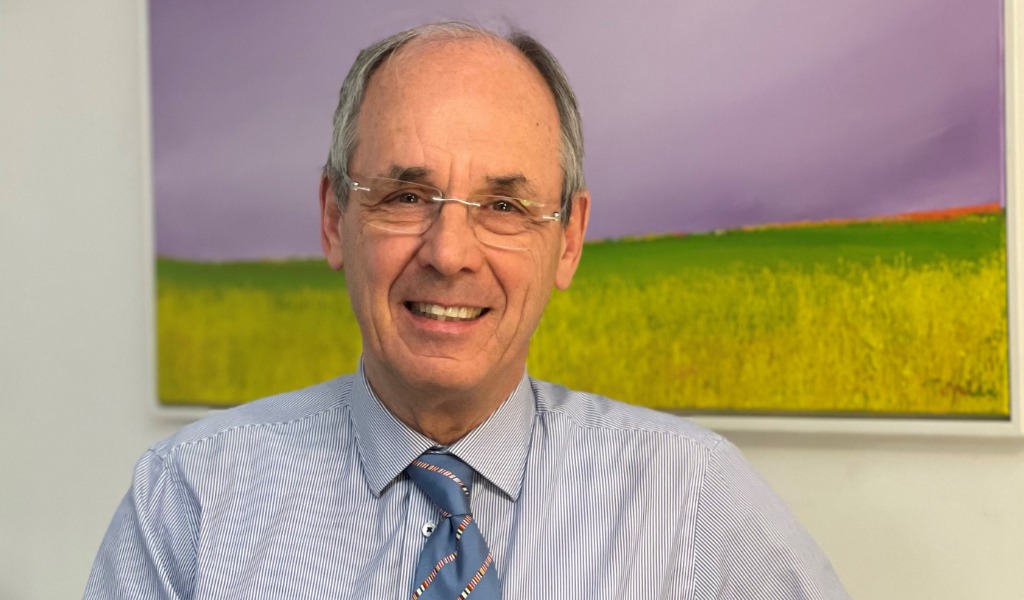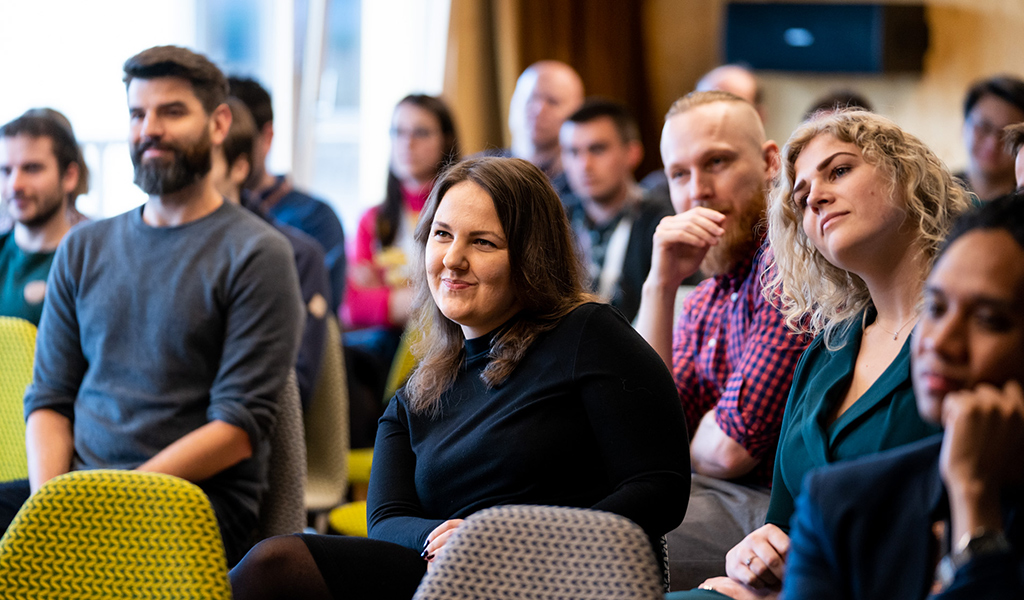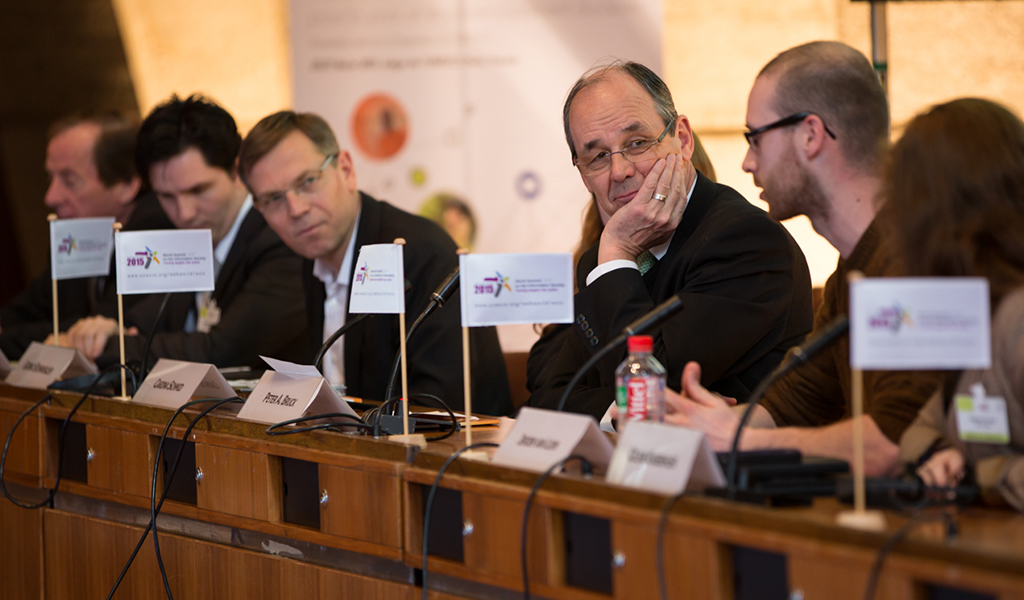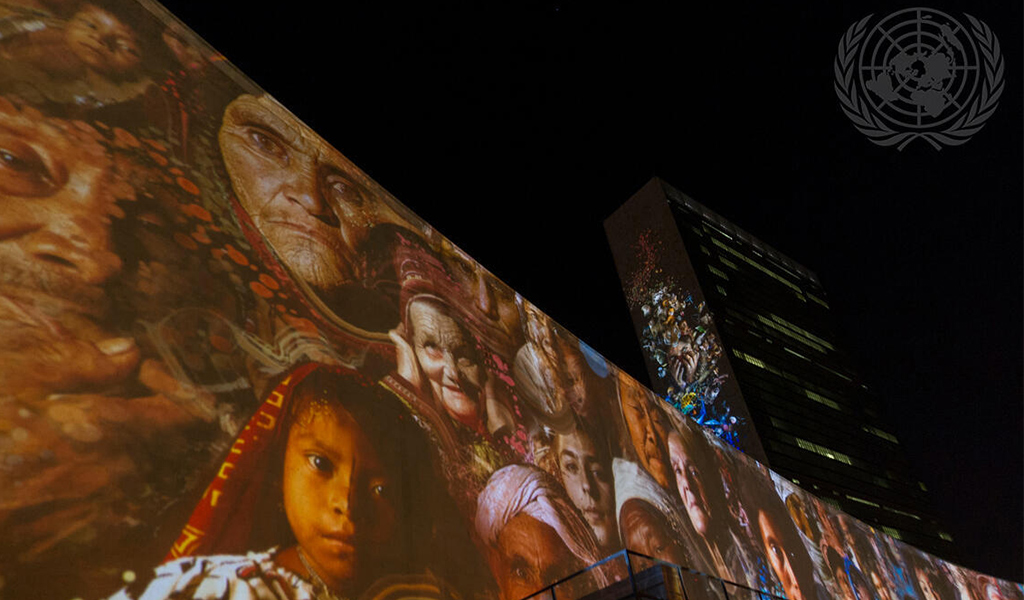WSA Global Congress: A convergence of worlds
Interview with WSA Chairperson Peter A. Bruck
The WSA Global Congress, the highlight of the annual WSA cycle, is just ahead. It’s an opportunity for participants from over 180 countries—social entrepreneurs, eminent experts, jurors, youth ambassadors, inventive founders, smart networkers, new and older friends—to come together to discuss digital content creativity and futures.
It's also the perfect opportunity to talk with Prof. Dr. Peter A. Bruck who acts as Chairperson of the WSA Board of Directors (and so much more). We interviewed him about his thoughts on the future of technology and the humanity of things local, on the bridging of divides, and narrowing societal gaps.

Prof. Dr. Peter A. Bruck
Q: The WSA Global Congress is taking place March 22 – 24. What are your thoughts and hopes for this event?
A: The WSA Congress is special because it provides, in a very short time, an absolutely flabbergasting global overview of what is new, i.e., what is being produced, designed, and created in terms of content-driven digital applications. The important thing is not technology by itself, but how tech becomes effective in certain communities, in a certain economic context or certain markets by addressing specific issues and values. It is quite rare that innovation is not market-driven by people with market power and advertising resources.
The WSA Global Congress is built from a network in over 180 UN member states with a waterfall system of evaluation. In that sense, it's like if someone looks at our planet from another star system, and suddenly clearly perceives the burning issues of environment, government and participation, inclusion and so on. This perspective is new every year, interesting, and one can learn from it.
The WSA Global Congress is also very much an invitation to not just voyeuristically participate in something, but to interact in learning mode. Due to the global pandemic, the event is being held online, but this may give all of us a better opportunity to interact with each other regardless of travel restrictions. In this sense, it will be an eye-opening experience for those who can take the time on those specific dates.
Q: The WSA Global Congress is one of the annual highlights of WSA. Please define the goals and possibilities of WSA briefly.
A: The goal of WSA is to identify, evaluate, and showcase the best of content-driven applications and solutions for local community-building on the way to a true knowledge society, as well as for achieving the United Nations Sustainable Development Goals.
WSA addresses the use of digital technology for interactive content that excels in terms of design, state of the art technology, but is very much focused on impact and delivering value to the recipients, the users.

WSA Global Congress (Vienna, 2020)
Q: Taking a closer look at the winning projects, what would you consider the big issues of our time?
A: This year's winners stand out in their seamless integration of artificial intelligence applications into their content, for their intelligent use of advanced data processing to expand services and application range, and for precisely highlighting and demonstrating that differences in technology speed and technology adoption do not mean a difference in terms of local significance and impact. This is a very important point, because a lot of the digitization discourse, including in politics and business, but also in university research and in society, is very technology-fixated or technology-centered. What WSA shows is that impact is always contextual and local, and that it needs to be viewed, judged, and evaluated in terms of the local.
Let me put it this way: In a globalizing technology space, the local is the source of our humanity.
Q: Can you expand on that a bit?
A: In the final documents of the WSIS (World Summit on Information Society) the question of content was included because of the Austrian delegation (i.e. then State Secretary Franz Morak, Prof. Dr. Peter A. Bruck, Ambassador Walter Lichem, Christian Rupp, Birgit Berger). We paid special attention to the local, the content, and only through our repeated insistence was the term included in the final UN document by the delegates and approved also by UN General Assembly, UNESCO and ITU. However, necessity of localness of content was not really understood at that time. It was not discussed that everything is cultural and thus must be considered at the local level, if only to include the use of language as a means of communication. Just one example: in Canada's Northwest Territories, a region about four times the size of Europe and home to the Dene, Inuit, and others, there are 23 spoken languages. And they have 53 transcriptions. That shows why the local reference is so important, why it is indispensable, why it is the base for a human knowledge society.

Prof. Dr. Peter A. Bruck @ WSIS +10 (Paris, 2013)
Q: You mentioned the WSIS initiative of the UN. What does this connection mean for the whole WSA program?
A: The World Summit on Information Society has given the WSA a distinctive focus as a global initiative bridging the digital divide in content, the content gap. WSA spreads the awareness that digital divide are not just divides regarding access, but also regarding content, gender, knowledge, usage, participation, and, as we note, a divide in motivation and commitment to addressing the climate crisis.
Q: Are divides narrowing?
A: As I said before, WSA deals with multiple divides and see the gaps. We address the content gap, the gender gap, the wealth gap, and so on. Our focus on hacking the gaps, bridging the divides, is something that requires a continuous, determined commitment of energy and creativity, of will and work, of sweat and imagination. I, at least, do not anticipate that we will be able to bridge these divides definitively in our lifetimes. We succeed with respect to the WSA because we keep at it. But there is no expectation that we will find simple final solutions to any of these discrepancies. We know that we must be determined and keep going, and we're not going to stop.
Q: In a reality without boundaries, what would you wish the WSA to be? Any ambitious ideas?
A: The WSA has fulfilled its purpose in many ways over the years, encouraging people—producers, designers, developers—to look at interactive content as a particular field of creativity to move people, create knowledge and offer appropriate solutions to local and community problems with a global perspective. Anything that helps our programs to have a greater impact and to reach more people is not only welcome, but necessary to ensure that we move toward a human-centered knowledge society, where hybridity is not just a technological game and a threat to people, but where transformations increase our humanity in terms of relationships. That is the task!
Header Image by UN / Mark Garten

